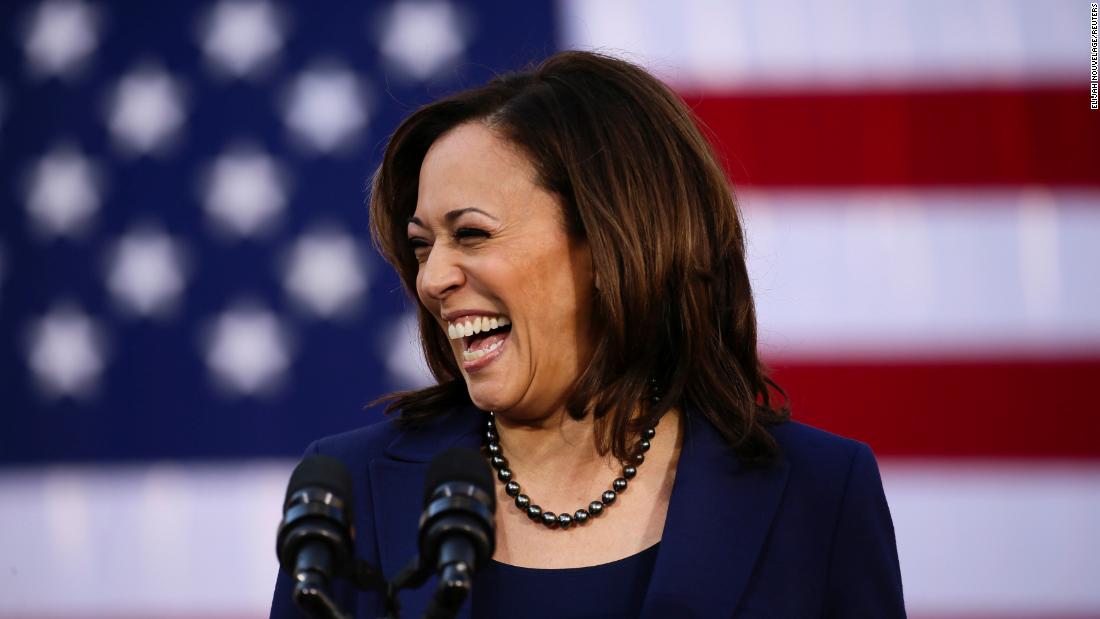But anyone doing civil rights work for as long as I have can tell you: Swells of progress and public interest are almost always followed by invisible hands of resistance and silence, along with powerful reversions to the status quo. We can’t afford to let this happen now.
This means keeping up the pressure that has given us this opening. It also means selecting leaders with the skill and strength we need to translate our urgent demands into real, sustainable change. This is a time for steely-eyed public servants who play no games and demand results. It’s time for Sen. Kamala Harris to join Joe Biden’s ticket and, God willing, help him actualize the next phase of this movement from the White House.
The case for me is simple: She’s been a change agent at every level of government — local, state, and federal — for
30 years. She has been a trailblazer for
reform-minded prosecutors nationwide. She is the only
Black woman in the US Senate, and just the second in our history. And having watched her skewer
witness after witness testifying at Senate hearings, I know exactly who I want to see go toe-to-toe with Mike Pence.
The truth is, Harris has been unraveling broken systems and confronting injustice since long before most people knew her name. And as someone who spends nearly every waking hour fighting these very systems — believe me when I say we need more fierce allies in positions to drive change from the inside.
It’s tempting at times for those of us outside the government to apply purity tests on those fighting systems from within. But I’ve been at this for a while. What I know is that amidst the fraught forces swirling inside our systems and this country, Harris is a force for good. She is exactly the type of leader we need alongside Joe Biden to help us through what comes next.
Still, for anyone stuck on whether a
prosecutor or attorney general can lead on justice reform, I say: check the record. I did.
As San Francisco’s district attorney, she launched
“Back on Track,” a re-entry program that deferred jail sentences for young people facing their first felony offense for low-level drug crimes and provided job training, counseling and other services instead. Over a two-year period, the program reduced recidivism among its graduates to less than 10%, according to a
Bureau of Justice Assistance report. In comparison, 53% of California’s drug offenders returned to prison or jail within two years of release.
At the same time, she prioritized
reopening cold cases by creating a special unit, partnered with community leaders to
open a safe house for victims of human trafficking and established an LGBT Victim Advocacy Unit to
focus on hate crimes committed against LGBT individuals.
As the attorney general of California, she opened pattern-or-practice investigations into
two separate police departments after community complaints and reports of excessive use of force and misconduct. She also launched a certified procedural justice and implicit bias
training course for police officers — the first of its kind. Under her leadership, California’s DOJ also became the first statewide agency in the country to
mandate body cameras, and she created “Open Justice,” a
publicly accessible database that included deaths in police custody and arrest rates.
She secured
$20 billion from the big banks for California homeowners hit hard by the foreclosure crisis, a
$1.2 billion judgment from for-profit colleges for defrauding students, and oversaw California’s
largest fraud settlement in decades against a chain of medical laboratories that overcharged the state insurance program for the poor and disabled for more than 15 years.
Now, I only see her gaining strength as a US Senator. Her first major bipartisan bill was legislation to reform the
bail system that is disproportionately harming Black and brown people. She advocated and pushed for The First Step Act, the bipartisan prison reform legislation,
to include sentencing reforms. She introduced a bill to f
und public defenders and another to officially recognize
lynching as a hate crime.
Amidst the anger and chaos of 2020 and this year’s historic protests, I’ve seen her
join us in the streets and carry our message to the
heights of power in Washington. She was one of the first national leaders to
say Breonna Taylor’s name and swiftly called for federal investigations into both her and
George Floyd’s deaths.
She’s led the national effort to
advance police reform. And this was after she spent months sounding the alarm on the
coronavirus and its effect on communities of color both around public health and the economy. Just this past week, she announced a
bill that would ban evictions and foreclosures for a full year. The bottom line is this: when and where it counts, Harris tends to be right where we need her.
I won’t parse words: A second Trump term scares the hell out of me. I can’t stop imagining the onslaught of racism, corruption and injustice we’d all endure, with Black folks as always bearing an outsized burden.
We have plenty to do before November to ensure this presidency is put to rest and we can slam the door on Trump’s brand of politics. Still, with Joe Biden’s selection of a running mate — the partner with whom he will need to repair a shattered economy, a damaged global reputation, a justice system in need of a serious overhaul, and the most profound racial reckoning of this era — it fills me with great hope to imagine Harris joining him in this fight.
As a civil rights activist, a sworn defender of justice, a Black man, and a proud dad, I can only hope that this January I get to teach my little girl the proper greeting for Kamala, our sister in the movement for justice: Madam Vice President.



